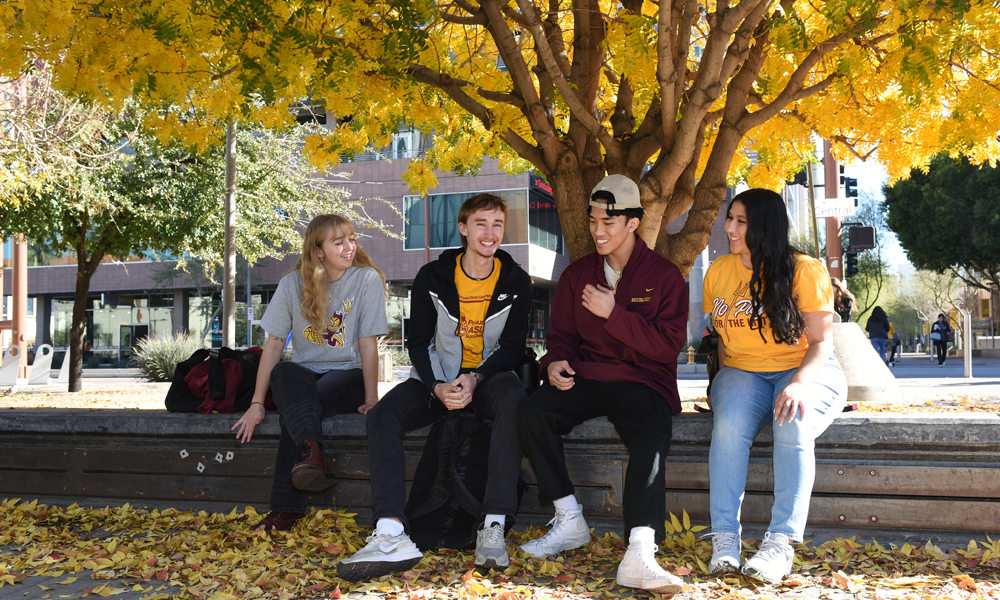Accessible education: New initiative by Hobbs to increase FAFSA completion in Arizona

Have you finished your FAFSA this year? Don’t worry if you haven’t, because you aren’t alone. Arizona currently ranks 49th in the nation for FAFSA completion. To help improve this outcome, Governor Katie Hobbs announced a $500,000 investment on April 17, 2024, which will be used to increase statewide resources and host more FAFSA completion events.
“As someone who participated in a work-study program and was awarded scholarships to help me get through college, I cannot overestimate how important it is to take advantage of all the resources available to attain a higher education,” Governor Hobbs said in a press release. “FAFSA has helped millions of families, and for many, can be the final piece that makes their child’s dream of attending college a reality.”
Hobbs’ new initiative will support and grow the resources offered by a statewide FAFSA coalition, led by the Arizona Board of Regents. These resources include virtual events and appointments for students and their families, an Arizona FAFSA hotline, text message support through ‘Ask Benji,’ a new communications toolkit, Arizona College Connect and more.
The Free Application for Federal Student Aid, known colloquially as FAFSA, is something students must file in order to receive federal grants, work-study funds and loans. The form is free to complete and helps students pay for college or trade school.
Vanessa Ruiz, deputy vice president for Educational Outreach and Student Services (EOSS), spoke about the importance of filing a FAFSA as an Arizona State University student.
“Filling out a FAFSA form is important for any student aspiring to attend a community college or a four-year institution,” Ruiz said. “It is the only way that a student and their family finds out how much financial support they are eligible to receive from the federal government.”
When asked why Arizona students might be struggling to complete their FAFSA forms, Ruiz highlighted some key barriers. Data points to the new structure of the FAFSA, introduced this year.
“It is new and improved, but it was a slower rollout than normal,” Ruiz said. “In addition to that, some students found themselves unable to complete the FAFSA form. It made the process a lot longer and more challenging for families, and that’s why we’re seeing a lower percentage of FAFSA completion rates.”
According to Ruiz, ASU wants to help prevent students from getting overwhelmed or discouraged by the FAFSA application.
“What we don’t want is a student or their family to walk away discouraged, saying it’s too much,” Ruiz said. “That’s why it is critical that all stakeholders, anyone with a vested interest in making sure our Arizona students have access to higher education, come together and support these students across the finish line. That way, any student that wants to go to college won’t be left behind.”
Ruiz pointed to the significance of the FAFSA, especially for first-generation college students, whose parents may not have had the opportunity to attend university.
“It helps aid economic mobility,” Ruiz said. “Many times, it’s not just helping to improve the student’s life, but also helps the lives of their families. Once that first person in the family gets a college degree, it becomes a little easier for the next person.”
One of the mission statements issued by Hobbs was the increased focus on expanding education access, something highly prioritized on campus through Access ASU. The Access ASU team is dedicated to increasing access to higher education, collaborating with K-12 schools and preparing Arizona students for success.
Ruiz commented on the importance of promoting accessible higher education and how the FAFSA ties into that.
“I look at education as the great equalizer,” Ruiz said. “One of the things no one can take away from you is your education. For groups that may come from underrepresented and under-resourced communities, it is important they have access to an education of excellence.”
Access ASU offers an abundance of financial aid resources to help students navigate the potentially confusing application process. Ruiz encouraged students to reach out to the admissions office with any questions.
“We understand how important it is to support our Arizona students and families,” Ruiz said. “This FAFSA cycle is going to be a lot longer than normal, because the FAFSA was unveiled later, and there have been some hiccups along the way. However, ASU is here to support you every step of the way.”
Students seeking help with FAFSA completion can visit the Access ASU website or view the statewide resources here. Ruiz emphasized that if you haven’t yet finished your 2024-2025 FAFSA application, do not stress.
“It’s not too late to fill out your FAFSA form,” Ruiz said. “If you have any questions or any concerns, Access ASU is available and ready to help you.”